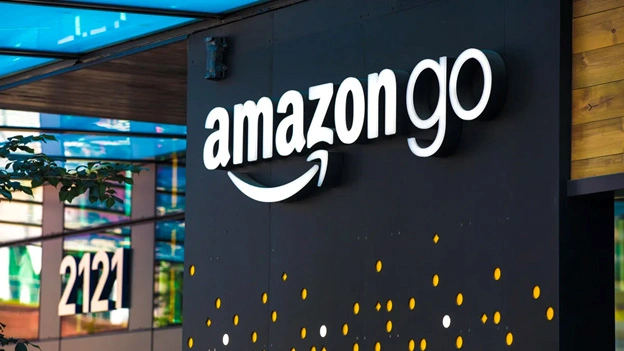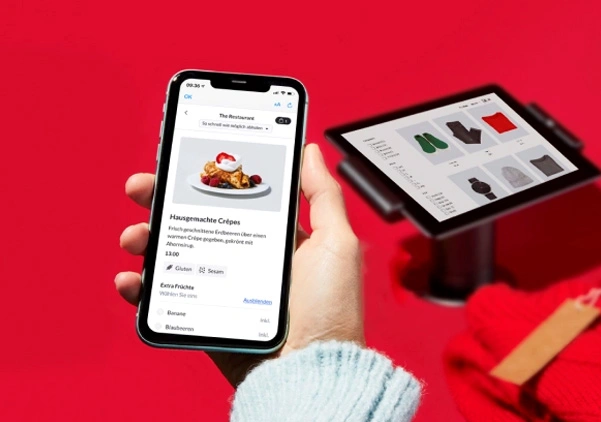Home industry retail 10 Tips to Open a Retail Store
Retail

CIO Bulletin
2022-05-30
According to Statista.com, global retail sales witnessed a significant growth of 9.7% in 2021, despite the after-effects of the lethal Coronavirus.
The retail business is outwardly profitable.
Retail businesses are no more bound to brick-and-mortar stores.
From eCommerce to mcommerce, infomercials, television marketing, catalog sales, vending machines, and in-house demonstrations, the retail business has evolved significantly over the years.
From 1993 to 2015, the US retail sales grew by 4.5% with sales reaching above $22 trillion in 2014.
As per the forecasts, the global retail sales revenue is expected to be around $27.3 trillion by the end of 2022.
If you are thinking of entering the retail market and launching your own retail store, now is the time to venture into this space.
In this article, we will share with you the top 10 tips that will be a handy guide for you if you’re planning to open a retail store anytime soon.
Top 10 Tips to open a retail store
Whether you are launching a physical store or investing in a virtual one, you need to keep certain things in mind.
The success of your retail store partly depends on your marketing abilities and here are some amazing tips to hone your marketing skills.
1. Focus on your mission and business plan
Before investing in a retail store, you should be clear about your vision.
The most important question here is — what do you want to achieve from your retail store other than profits?
Earning profits is the result of all your business activities but your mission should be something that satisfies you to the core of your heart.
Write down your mission in a piece of paper.
Develop a business plan and decide what type of a store you want to launch — will it be a brick-and-mortar store, a virtual eCommerce site, or a hybrid one?
Your business plan should also include other parameters, such as:
2. Keep an eye on your cash position
After deciding on your products and the platform, you must consider your financial position. You should have a clear idea of how much does it cost to open a store.
Opening a retail store involves a considerable amount of investment. There are establishment costs, operating costs, licensing fees, insurance costs, marketing costs, social media management costs, etc.
Make sure you have your finances ready before launching your retail store.
3. Choose the right location

Even if you are planning to launch your retail store online, a physical presence is required to create brand awareness for your store, especially if you are launching the retail store for the first time.
According to reports, 59% of the customers say that they are comfortable shopping physically by touching and feeling the products before buying.
Even market giants like Amazon are now eyeing physical department stores to reach out to their already established customer base.
As a newbie in the retail market, it is essential to build a physical store to let your customer know about your brand. For that, you need a proper location to build your store.
Finding a suitable location is extremely essential when you are launching a brick-and-mortar retail store. If you want to be a successful retail owner, never compromise with the retail space.
Always try to establish your retail store in prime locations, like in the heart of the city. Poor access to your retail store might keep your customers away and you certainly don’t want that.
Take time to research the places where your target customers spend most of their time. If you have a lot of inventories and need a separate space to store them, make sure you select a location that can offer you this additional space.
4. Determine the legal structure of your business
Before you register your retail business, it is important to decide what will be the legal structure of your business.
The business structure depends on several factors like:
If you are confused you can appoint an accountant to help you decide the best for your business.
5. Complete all the legal procedures
After deciding the business structure of your retail store, it’s time to complete all the legal procedures.
The retail store should be registered under proper authorities and should also hold a proper license to conduct business in the selected location.
Some businesses just require a general license to operate while others need a proper license at the industry level. Check all these details before applying for a license for your retail store.
Moreover, if you want to run your business as a sole proprietor, you need to get the facts clear from a regulatory body.
A sole proprietor also needs to hold a separate license from the regulatory body stating the fact that he wants to act as a sole proprietor.
As a retail owner, you also need to apply for your insurance to safeguard your business in case of any mishaps in the future. General liability insurance and crime insurance are the mandatory ones to apply for.
As an employer, you also need to provide health insurance to your employees.
6. Find trustworthy vendors and suppliers
Once all the legal procedures are completed, future retail owners should focus on finding reliable vendors and suppliers. You need to carefully consider your budget for selecting the vendors.
A trustworthy vendor might help the retail owners in selecting the right products especially if they are new in the retail market.
It is always recommended to work with several vendors because if one fails to deliver products on time, the business would not suffer.
Certain tips that can help in selecting the vendors and suppliers for the retail store include:
a) Reputation – it is always recommended to work with reputed vendors who can guarantee on-time delivery of the products.
b) Responsive customer service – The vendors should be easily accessible in times of need. They should have a responsive customer support service to cater to the emergency needs of the retail owners.
c) Quality of products delivered – Make sure that the vendors supply quality merchandise.
7. Hire responsible employees
If you are launching your in-house retail store, make sure you hire reliable employees. Interview a considerable number of employees and emphasize on their previous experiences.
It is also important that you gauge their temperament and attitude because, at the end of the day, your objective will be to make your customer happy and satisfied.
8. Select the right Point-of-Sale (POS) system

Keeping multiple payment gateways open for your retail shop is a milestone step you can take to ensure your business’s success.
A POS is a collection of several hardware and software systems to enable your retail store to accept multiple modes of payments from your customers.
Choosing the right POS system is important for both physical retail stores and e-commerce retail sites.
The POS should accept cash, checks, and cards (both chip and swipe). It should also include a barcode scanner and a printer.
Train your employees about the basics to use the POS system.
9. Organize your funds
Organizing your finances properly is the next best thing to do irrespective of the amount of capital you have set aside for financing the project.
To organize your finances properly, it is better to open a business checking account.
You can open a business account in your current bank and maintain your finances accordingly.
Else you can also create a business account to some other banks if they provide better offers and discounts.
Acquire a business credit card and use it for business purposes only.
10. Market your retail store
Business is all about promotions. Implement various retail marketing strategies like digital marketing, print advertising, influencer marketing, public relations services, etc to reach your target customers.
For brick-and-mortar stores, a combination of marketing strategies involving SEO marketing, email marketing, social media posts, etc can serve your purpose of the detailed promotions for your store.
Create a post about the events on the social media platforms a week before the opening of the retail store both online or physical. This will help customers to do a little research about your store before visiting personally or taking a virtual tour of your store.
Make sure to give a warm welcome to your customers when they visit your store. Try to gain your customers' trust even when you are selling online.
Be transparent when showcasing your products. Encourage them when they are giving feedback. Both positive and negative criticisms will help you grow and improve your business skills.
Share your business card with your customers. The card should have your phone number and email ID so that your customers can reach you whenever they need you.
Conclusion
Launching a retail store is not a one-day affair. These are some of the time-tested tips that should be incorporated into a plan when launching a retail store.
Focus on the steps you take and instill confidence in whatever you do.
Brush on the basics, steer technology to your advantage, and offer a memorable shopping experience to retain your customers to your store.
Banking-and-finance
Artificial-intelligence
Travel-and-hospitality
Management-consulting
Banking-and-finance
Banking-and-finance
Food-and-beverage
Travel-and-hospitality
Food-and-beverage